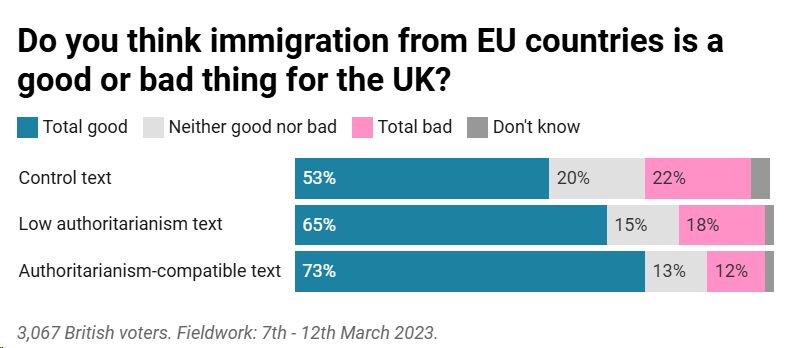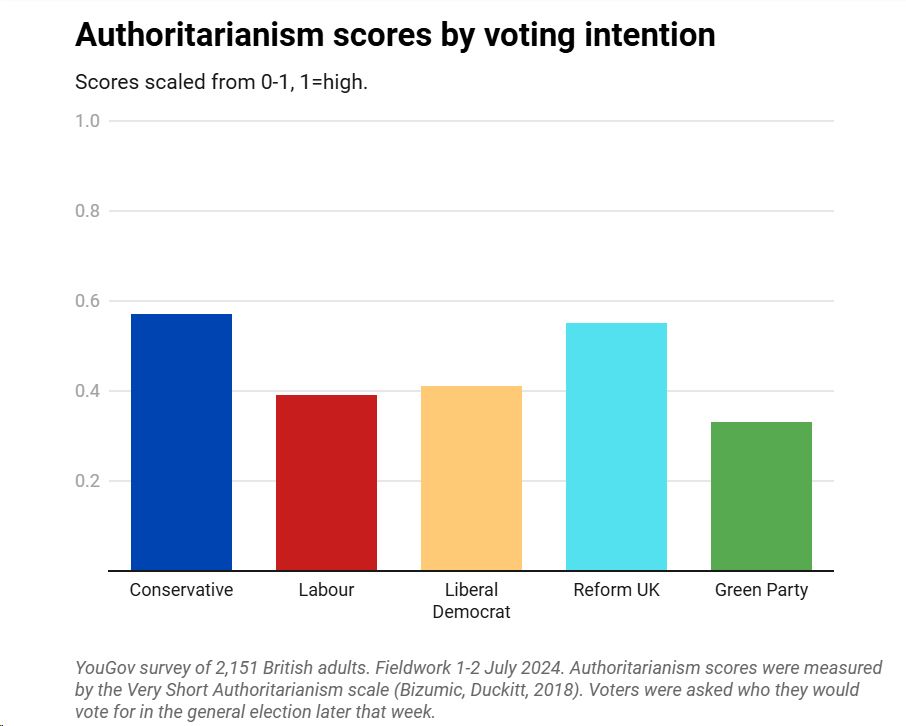British attitudes to immigrants from Europe can be shifted by relatable messaging, study finds
Posted:
16 Sep 2025
A short profile of a migrant NHS worker that taps into values of duty and hard work produces a 20-point swing in positivity towards EU immigration among British voters, according to a Cambridge psychology experiment.
The findings run counter to the prevailing belief among the political class that pro-immigration arguments cannot persuade the UK electorate, say researchers including senior author and Trinity Hall Fellow Dr Lee de-Wit.
UK voters are far more likely to see immigration from the EU as good for Britain after reading a short, positive message about a Polish migrant that highlights values such as hard work and duty, combining a personal narrative and emotional appeal with references to reliable data.
Researchers from the University of Cambridge’s Political Psychology Lab conducted an experiment with over 3,000 adults in the UK to see how they feel about migration from Europe, and if different types of information can influence these sentiments.*
They found that exposure to a brief profile of “Sonia”, an NHS worker and fan of British wildlife documentaries who comes from Poland, increased the share of voters who think EU immigration is a good thing by 20 percentage points.
Of the group randomly assigned to read this 400-word note about “Sonia”, 73% declared EU migration to be positive, compared to just 53% of those given no notes about migrants by psychologists, but rather a neutral text about baking bread.
Researchers designed the message to be particularly appealing for voters with what psychologists call “authoritarian” traits, such as a preference for rules and norms, a willingness to punish those who deviate from said norms, and a desire for strong leadership.**

Previous research shows these personality traits are linked to opposition to immigration among UK voters, and to the likelihood of voting to leave the EU in 2016’s Referendum.
In fact, polling conducted for the Cambridge team shortly before last year’s general election found Conservative and Reform UK voters were higher in authoritarianism than Labour, Green, and Lib Dem voters.

While immigration has long been a contentious issue in British politics, many argue it is of considerable benefit to the UK economy. The Office for Budget Responsibility consistently forecasts billions in additional tax revenue from migration, with little impact on welfare.
The Cambridge University researchers say that a relatable narrative about EU migrants stands in stark contrast to much of what the British public received from media and politicians during the EU Referendum debate***, as well as in the decade since.
“This study shows that making a positive case for migration from Europe can sway UK public opinion, something many in Westminster have appeared to doubt,” said Dr Tessa Buchanan, lead author of the study published in the journal Scientific Reports.
Buchanan points out that David Cameron, who called the referendum when Prime Minister, wrote in his memoirs that immigration was an issue on which he felt he had “no clear answer”.
“From ‘stop the boats’ to ‘smash the gangs’, much of the political debate on immigration has understandably responded to public concerns about control. This means that the dominant narrative around immigration focuses on the negatives,” said senior author Dr Lee de-Wit, who leads Cambridge’s Political Psychology Lab.
“Previous research, including by our lab, shows people often think those they disagree with are irrational or misinformed, or more extreme in their beliefs than they are. This is especially true for how Labour supporters think about Conservatives,” de-Wit said.
“The worry is that this leads one side to stop engaging with arguments that might change minds on the other.”
The most effective message contained factual arguments quoting the Office for Budget Responsibility, and mentioned that over a quarter of UK hospital doctors come from overseas and about one in five of UK nurses. It asked people to consider the issue of essential jobs going unfilled in areas such as fuel deliveries or care homes.
It then uses a composite portrait of a worker from Poland, “Sonia”, who is described as an NHS nurse who has lived in the UK for five years and enjoys chatting to her patients. She moved to Britain to live in a “safe, fair-minded country where hard work is rewarded”, and her favourite TV show is BBC nature documentary, ‘The Blue Planet’.
The reader is invited to consider “Sonia’s” dilemma about staying in the UK, with so many of her EU nursing colleagues leaving, and feelings of a question mark over her future.
“A swing of twenty points on such a divisive issue, triggered by just a few paragraphs, tells us that attitudes to EU immigration in Britain are far from fixed,” added Buchanan, a researcher in Cambridge’s Department of Psychology.
“We found that when you tell people a positive story about EU migrants who come here to work and embrace British society then they react positively. This may be a message they have not heard much before.”
“This approach may be especially effective for culturally similar migrant groups such as those from EU nations.”
The study also tested a “low authoritarianism” message, designed to appeal to more liberal-minded voters who may view EU migration positively, but potentially off-putting to more authoritarian-leaning voters.
In this message, “Sonia” is a fashion design student with plans for a shoe-exporting business in London, who “loved the way that drag queens and Bollywood were included in the Queen’s Jubilee”. While not as effective, this message still increased the share of voters who think EU immigration is a good thing by 12 percentage points above the baseline (from 53% to 65%).
Notes
* A total of 3,067 adults of voting age took part in the study, weighted to be representative of the UK population in terms of age, education, gender, and political affiliation. Each participant completed a 5-minute survey that included two psychological tests (the ‘Very Short Authoritarianism’ and ‘Social Dominance Orientation’ scales). The main experiment was conducted in March 2023 by polling firm YouGov.
** Those with moderate authoritarianism scores, who were the intended audience for this text, felt their values overlapped more with “Sonia” when they were exposed to the “authoritarianism-compatible” text rather than the “low authoritarianism” text.
** Research by Cardiff University in the lead-up to the EU Referendum found sections of the British media ran far more stories stressing the threat migrants posed to domestic welfare and health systems than media in countries such as Spain, Italy and Germany. A King’s College London study found that immigration from Europe was the most prominent Referendum issue based on the front pages of UK newspapers, and the stories were overwhelmingly negative.
Originally published by the University of Cambridge on 12 September 2025.